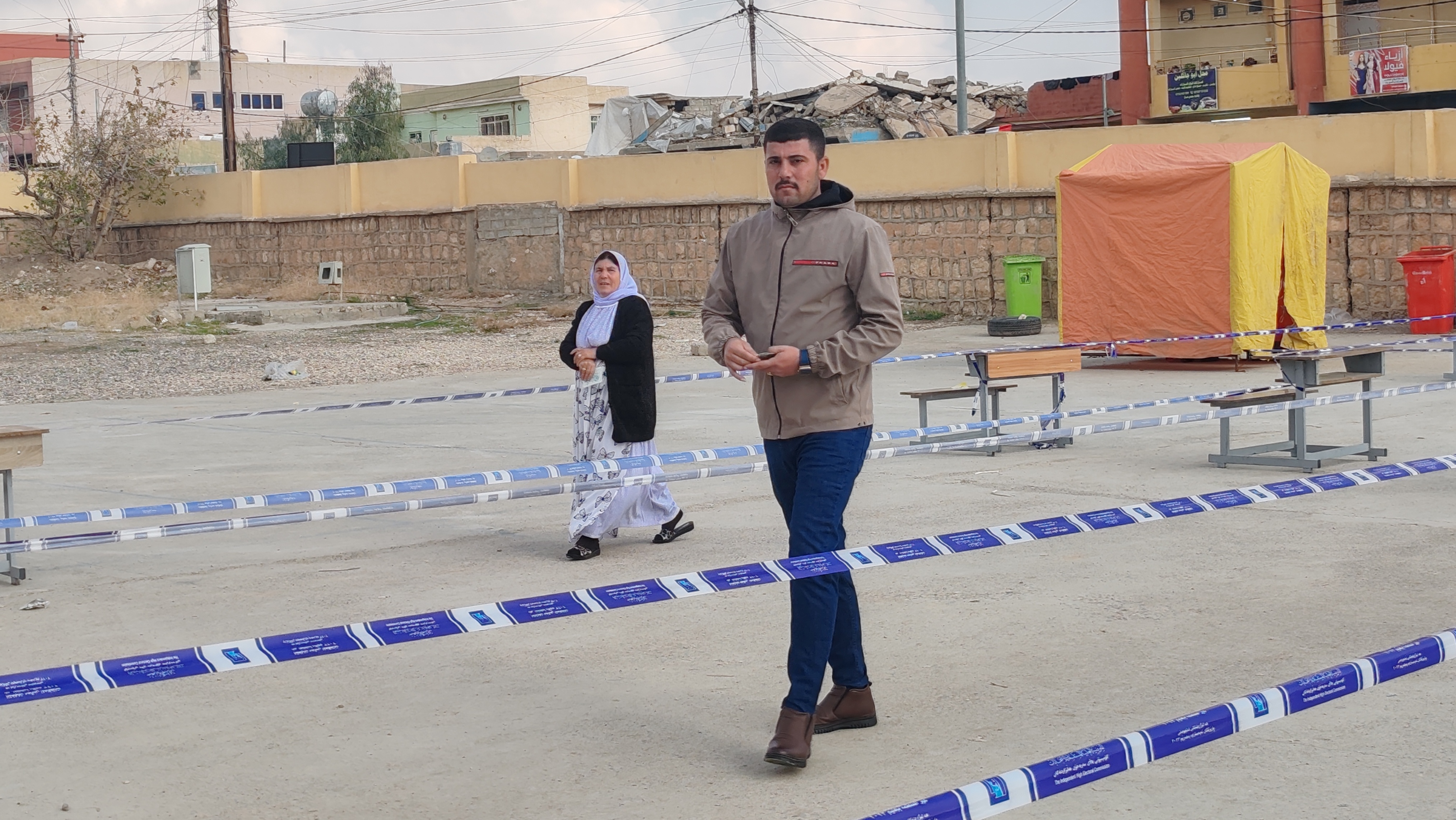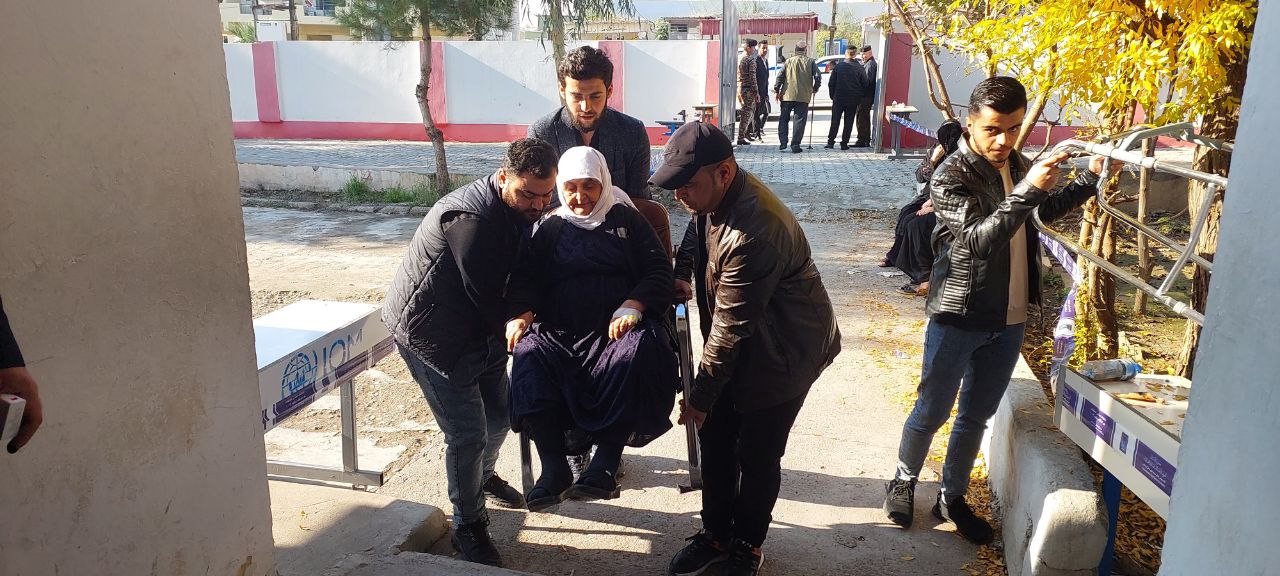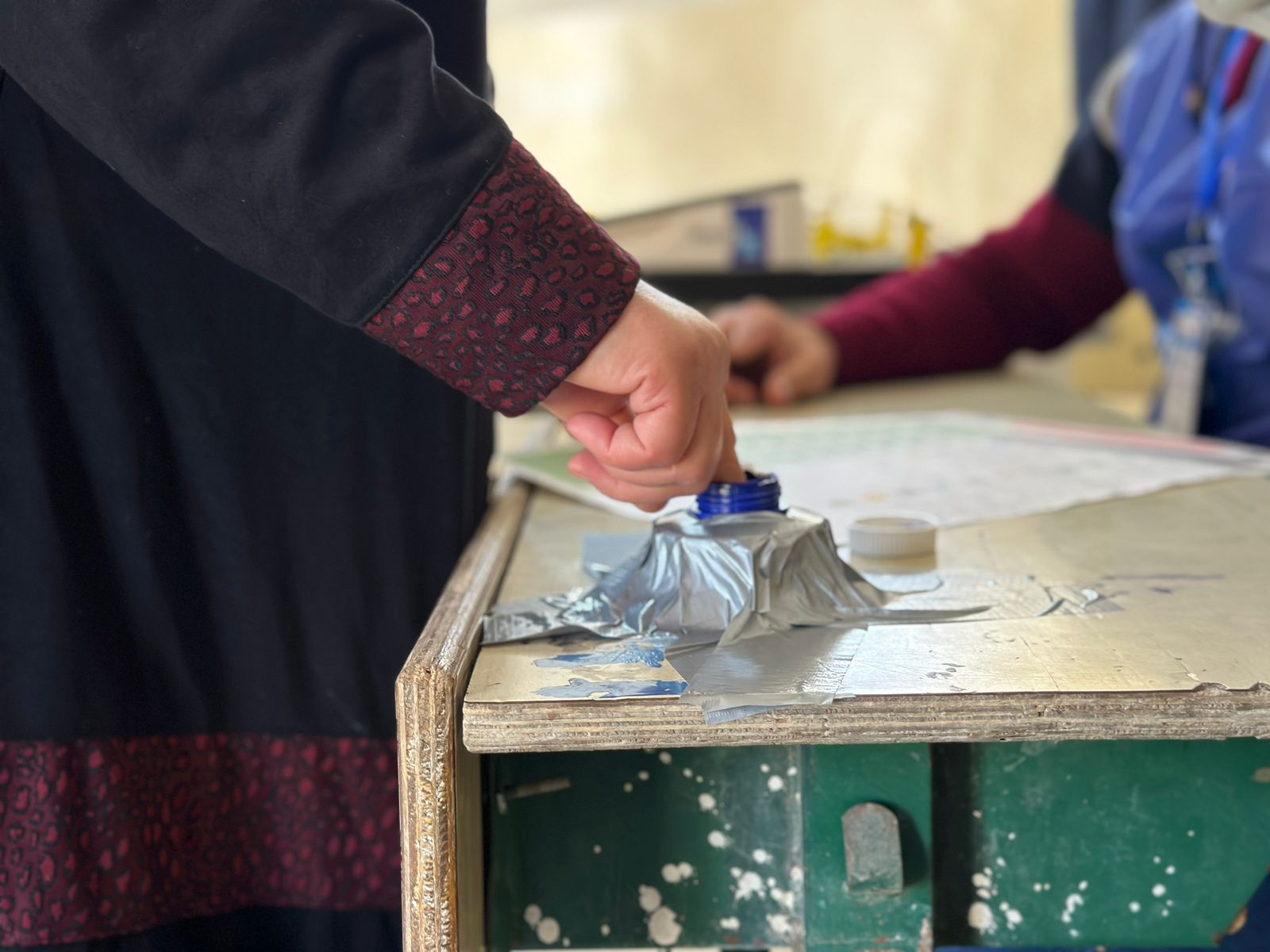Candidates of the minorities in Iraq earned over 42,000 votes, enabling them to win the ten quota seats. They also succeeded in winning additional seats by participating on other lists.
According to the final results of the Iraqi provincial council elections, the 10 seats allocated to Christians, Sabean Mandaeans, Faili Kurds, Ezidis and Shabaks, received 42,322 votes.
48 male and female candidates competed to win the minority quota seats, which were distributed as follows: Baghdad (3 seats), Nineveh (3 seats) and one seat in the provincial councils of Kirkuk, Basra, Maysan and Wasit.
The Ezidi (Yazidi) quota seat in the Nineveh Provincial Council went to Idan Shavan Sharo, after he obtained 6,582 votes but the Ezidis secured two other seats within the framework of other lists, which went to Erivan Mahdi from the Kurdistan Democratic Party KDP list with 6,517 votes and Wissam Salem from Patriotic Union of Kurdistan PUK list with 3,611 votes.
“In the current session of the provincial councils, we obtained only three seats, while we had eight seats in the previous session, including a quota seat, and this is due to the lack of participation of Ezidi voters,” according to Barakat Shamo, an Ezidi candidate for the KDP list.
Only four Ezidi candidates were competing for the quota seat, while 25 Ezidis ran under various lists and alliances to win the other seats.
General voting for the provincial council elections was hold on December 18, 2023, throughout Iraq, excluding the Iraqi Kurdistan Region IKR. These elections were of great importance, especially for Kirkuk, as they have not been held in the governorate for 18 years due to disagreements between its components.
According to the figures by the Iraqi Independent High Electoral Commission IHEC, over 15 million Iraqis were entitled to participate in general voting to nominate 285 members for the provincial councils.
The provincial councils have administrative and financial power as they draw the plan for the reconstruction of the province, maintenance of the public services in addition to nomination of the governor, his deputies and director general of the state departments in the province.

A polling station in Sinjar, home for the non-Muslim Ezidi community, Nineveh, December 2023. KirkukNow
Karwan Baadari, an Ezidi journalist, told KirkukNow 63,227 Ezidis cast their votes in the elections, 30,238 of whom voted for the candidates of the KDP, almost 48%, 13,151 votes (21 %) to the PUK, and then comes the Freedom and Democracy Party with 3,511 votes (15%).
Baadari pointed out that the votes of more than 17,000 Ezidi voters went to the candidates for the quota seat, which went to Idan Shavan.
The majority of Ezidis live in Shingal District, a disputed area west of Nineveh Governorate. The tolerant and vulnerable non-Muslim community fell under the control of the Islamic State of Iraq and Syria ISIS (Daesh) on August 3, 2014, which resulted in thousands of Ezidis being killed, kidnapped, and displaced. Another section of the Ezidis lives in Sheikhan, Bashiqa and other areas of the Nineveh Plain.
The Shabak component also succeeded in exceeding the quota in the Nineveh Provincial Council. In addition to the quota seat won by Muhammad Arif Yousef with 14,440 votes, one of the Shabak candidates on the Al-Hadbaa list, Moaz Haji Abbas, was able to win a seat after collecting 5,662 votes.
Five candidates competed to win the quota seat designated for the Shabak community.
“In the new council of Nineveh Governorate, the Shabaks now have two seats, one as a quota seat and the other on the Al-Hadbaa list,” Shabak candidate Ghazwan Hamid Al-Daoudi told (Kirkuk Now).
“The majority of the Shabaks have not receive the biometric voter card, so they were deprived of voting, which affected the votes of the Shabak candidates.”
According to the Independent High Electoral Commission IHEC statistics, five candidates are competing to win the seat of Shabak quota seat, and several Shabak candidates are participating in the framework of various lists and alliances.
The Shabak community in Iraq, an ethno-religious group, is estimated at about 300,000 or 350,000 people, 60% of them follow the Shi’a sect, while the rest are Sunnis. The community’s religious practices blend elements of Islam and local beliefs.
They are scattered in the regions of Bashiqa, Bartella, Hamdaniya, Tilkef, some neighborhoods of Mosul, and some villages of the Nineveh Plain. Like other ethno-religious minorities, they faced atrocities at the hands of the extremist militants of the Islamic State of Iraq and Syria ISIS.

The Christians won four seats, all of which were decided in favor of the Babylonian movement’s candidates, as follows: in Kirkuk (Angel Zia Sheba with 1,703 votes), in Baghdad (Fayez Sabah Abboush with 3,522 votes), in Nineveh (Rabi’ Yusuf Elias with 6,195 votes). In Basra, Nael Ghanem Aziz received only 987 votes.
16 Christian candidates competed to win the four quota seats.
Two decades ago, Iraq was home for over 1.5 million Christians, 3% of Iraq's population falling to 800,000 in 2003 following gulf war. They are mainly living in the provinces of Baghdad, Nineveh, Duhok, Kirkuk and Erbil. Latest figures say currently only 250,000 to 500,000 Christians are living in Iraq. The number of Christians in Iraq has fallen to 250,000, mostly in the Iraqi Kurdistan Region IKR, the Iraqi High Commission for Human Rights said last March.
The Faili Kurds have two quota seats, one of them in the Baghdad Provincial Council, which went to Amer Daoud Ibrahim with 3,892 votes, and the other in Wasit Governorate, to which Adel Muhammad Kazem received 2,285 votes.
13 candidates entered the race to win the two quota seats allocated to the Faili Kurds.
Faili Kurds are an ethnic group historically inhabiting both sides of the Zagros mountain range along the Iraq-Iran border, and can be considered a cross-border population. Today, the estimated 1.5 million Faili Kurds in Iraq live mainly in Baghdad, as well as the eastern parts of Diyala, Wasit, Missan and Basra governorates.
The Sabean-Mandaeans also have two seats, one of them in the Baghdad Provincial Council was decided in favor of Khaldun Faraj Jaber with 1,194 votes, and the second in the Maysan Provincial Council went to Riyad Abdel Wahed Shalaka with 1,522 votes.
Ten candidates competed to win the two quota seats.
Sabean Mandeans, considered the oldest unified religion of mankind, originated in the Rafidain Valley, specifically in southern Iraq, in the province of Maysan and the plains near the springs and rivers that became part of the religion's rituals and traditions.
Mandaeans were probably the first to practice baptism. They are a closed ethno-religious community, practicing Mandaeism, which is a monotheistic religion. The Mandaeans classify existence into two main categories: light and dark. They have a dualistic view of life, that encompasses both good and evil; all good is thought to have come from the World of Light and all evil from the World of Darkness.





